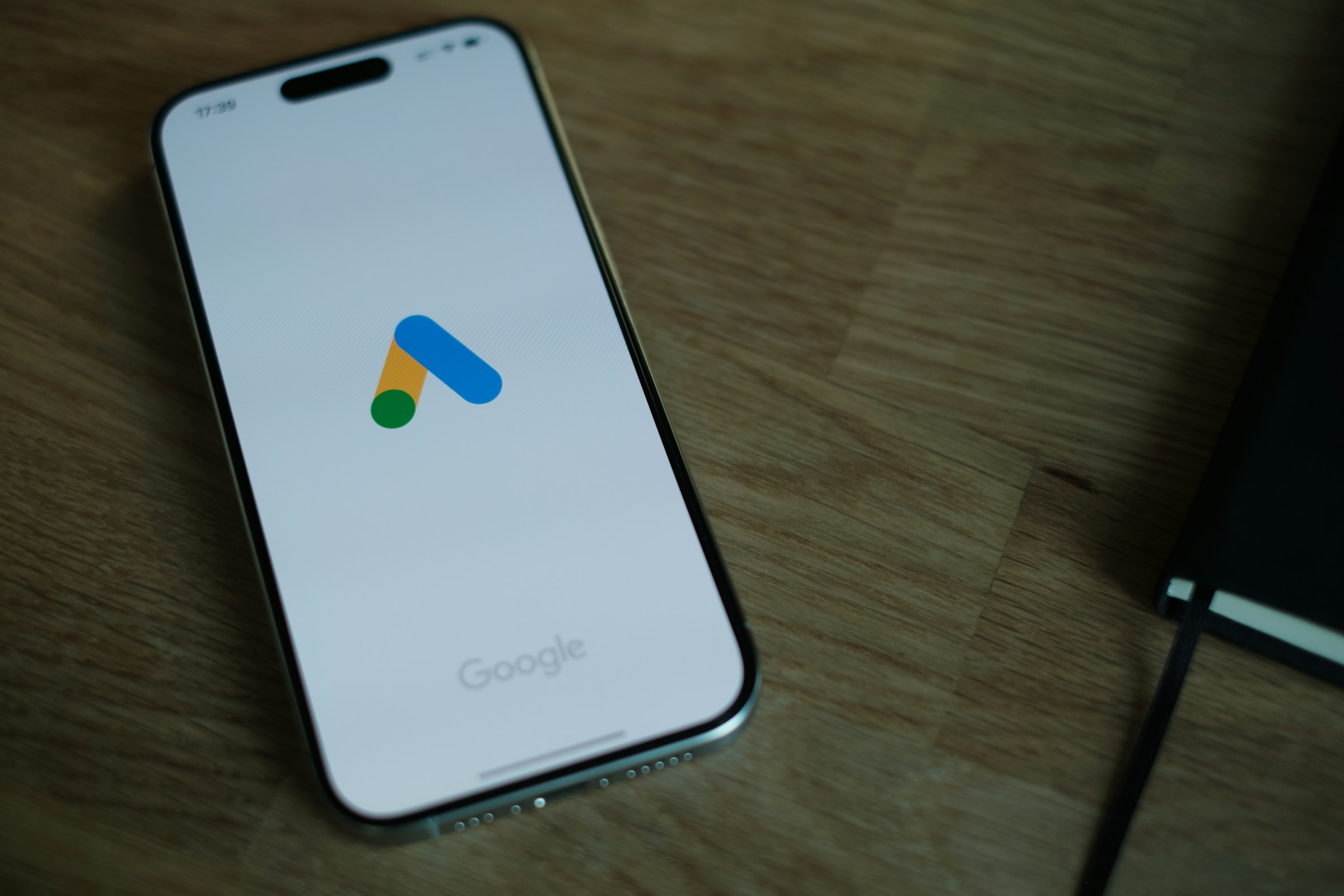
PPC & Google Ads Strategies
When “Smart” Campaigns Aren’t Smart Enough for Agencies
Google Ads introduced Smart Campaigns as a streamlined advertising solution designed to simplify the complexities of digital marketing. These automated campaigns handle everything from bidding to ad creation, making them an attractive option for small business owners who lack the time or expertise to manage traditional PPC campaigns.
Smart Campaigns work exceptionally well for their intended audience: local businesses, solopreneurs, and small enterprises with straightforward marketing goals. The platform's automation removes technical barriers, allowing these businesses to establish an online presence quickly without diving into the intricacies of keyword research or audience segmentation.
But here's where things get complicated for agencies.
When you're managing multiple client accounts with diverse objectives, industry-specific requirements, and varying budgets, the very features that make Smart Campaigns "smart" for small businesses become restrictive. Agencies need granular control, detailed analytics, and the flexibility to test and optimize campaigns based on specific client KPIs.
This is where understanding negative keywords becomes crucial. Smart Campaigns often overlook these vital elements, limiting agencies' ability to refine their strategies effectively. Furthermore, recent changes in Google's search term visibility have made it even more challenging for agencies to gather necessary data for campaign optimization. These search term visibility changes have significantly impacted agencies, reducing data visibility and complicating campaign management.
To navigate these challenges successfully, agencies must adopt a proactive approach. Regularly reviewing competitor terms not just monthly but on a weekly basis, can provide valuable insights that aid in faster market adaptation and continuous strategy improvements.
In such scenarios, leveraging tools like Negator can provide much-needed support. Negator offers advanced features that empower agencies with better control over their campaigns, enabling them to overcome the limitations imposed by Smart Campaigns and achieve their clients' marketing objectives effectively.
Understanding Smart Campaigns
Smart Campaigns are Google's solution for automated advertising, designed for businesses seeking results without the complexities of traditional PPC management. These campaigns eliminate the technical obstacles that often discourage newcomers to small business marketing.
How Smart Campaigns Work
At the heart of Smart Campaigns is PPC automation, which drives every aspect of this advertising model:
- Keyword Selection: Instead of manually choosing keywords, Google's machine learning algorithms analyze your business information and automatically generate relevant search terms.
- Bid Adjustments: The system makes real-time bid adjustments based on factors like device type, location, and time of day, without requiring your input.
- Ad Creation: You provide basic business details, and Google assembles headlines and descriptions that match user queries.
Automatic Targeting Across Multiple Platforms
The targeting in Smart Campaigns happens automatically across various platforms:
- Search Network: Your ads appear when potential customers search for products or services similar to yours.
- Google Maps: Local searchers discover your business through map listings.
- YouTube: Video platform placements reach users browsing related content.
- Gmail: Ads surface in users' inboxes based on their interests and behaviors.
Quick Setup Process
Setting up a Smart Campaign takes approximately 15 minutes:
- Enter your business category.
- Upload images.
- Write a few lines of ad copy.
- Set a daily budget.
Once you've completed these steps, your campaign is live.
The appeal for busy business owners is clear—you get advertising coverage across multiple platforms without needing to understand the intricacies of campaign structure, match types, or audience segmentation.
The Importance of Automation and Intelligent Automation
While automation simplifies many aspects of advertising, embracing intelligent automation can further optimize your business processes and boost efficiency.
The Role of Brand Consistency in Online Advertising Success
Moreover, achieving success in online advertising isn't solely about automation. A focus on [brand consistency](https://www.negator.io/post/why-brand-consistency-is-the-secret-weapon-behind-long-term-business-growth) can serve as a secret weapon for growth. This involves building trust, recognition, and loyalty through unified messaging and visuals.
Staying Ahead with Emerging Trends
As we look towards the future, it's important to stay ahead by adopting emerging trends. The [future of digital design](https://www.negator.io/post/the-future-of-digital-design-key-trends-that-will-shape) will shape UX, UI, and branding in 2025 with advancements such as AI integration and immersive experiences.
Implementing Proven Strategies for Online Presence Enhancement
Finally, implementing proven strategies can significantly enhance your online presence. By increasing your digital visibility and attracting more traffic, you can effectively grow your brand authority quickly.
Limitations of Smart Campaigns for Agencies
When "Smart" Campaigns Aren't Smart Enough for Agencies becomes painfully clear once you start managing multiple client accounts. The automation that makes Smart Campaigns attractive to small business owners creates significant roadblocks for agencies that need to demonstrate value and optimize performance.
Limited Control
Limited control sits at the heart of most agency frustrations with Smart Campaigns. You can't manually adjust bids, select specific keywords, or choose which placements your ads appear on. Google's algorithm makes these decisions for you, leaving you with minimal ability to refine your approach based on client-specific needs or industry nuances.
Lack of Transparency
The lack of transparency compounds this problem. You're essentially flying blind, trusting Google's machine learning without seeing the data that drives those decisions. For agencies accountable to clients who expect detailed performance breakdowns, this opacity creates uncomfortable conversations and erodes trust.
Campaign Restrictions
Campaign restrictions extend beyond just control issues. You can't segment audiences the way you would in standard campaigns, can't exclude specific demographics that you know don't convert, and can't implement negative keywords with the same precision. These limitations mean you're working with one hand tied behind your back.
A/B Testing Limitations and CTR Tracking Issues
A/B testing forms the backbone of effective PPC management. You test different ad copy, landing pages, and calls-to-action to identify what resonates with your target audience. However, Smart Campaigns don't support this fundamental practice. You can't run controlled experiments to compare headline variations or test different value propositions. The platform generates ad variations automatically, but you can't isolate variables or draw meaningful conclusions about what's working.
The CTR tracking issues present another critical challenge. Smart Campaigns provide high-level metrics like total clicks and conversions, but you can't access:
- Individual keyword performance data
- Quality scores for your ads
- Impression share metrics
- Search term reports with the same detail as standard campaigns
- Device-level performance breakdowns
This granular data matters when you're optimizing campaigns for maximum efficiency. Without knowing which search terms trigger your ads or how your quality score affects your cost-per-click, you can't make informed optimization decisions. You're left guessing why performance fluctuates or why certain campaigns underperform.
For agencies managing sophisticated clients with specific KPIs and performance expectations, these A/B testing limitations and restricted access to performance metrics make Smart Campaigns inadequate. You need data to justify your recommendations, prove your value, and continuously improve campaign performance.
Moreover, smart agencies track beyond clicks to optimize campaigns with deeper metrics like engagement, reach, and cost efficiency. This is a crucial aspect that Smart Campaigns fail to deliver.
In conclusion, while Smart Campaigns may offer a simplified approach for small businesses, they fall short for agencies requiring more granular control and transparency in their PPC management strategies. As we move into 2025, it's essential for businesses to stay ahead with the latest trends in tech and marketing to remain competitive in an ever-evolving digital landscape. It's clear that a great website isn't enough; strategic branding, messaging, and user experience are critical for growing your business online.
Budgeting Constraints and Cost Efficiency Concerns with Smart Campaigns
When you're managing multiple agency clients, budget predictability becomes non-negotiable. Smart Campaigns introduce a frustrating wrinkle: budget caps that remain in place until minimum conversions are reached. This creates a scenario where you can't accurately forecast spending for your clients, making it nearly impossible to provide the transparent cost projections they expect.
The lack of transparency around how Smart Campaigns allocate budget compounds this issue. Without access to detailed data on search terms and ad placements, you're essentially flying blind. You can't see which queries triggered your ads or whether budget is being wasted on irrelevant searches. This absence of negative keyword options means you have no mechanism to prevent spending on terms that will never convert for your clients.
Unpredictable costs become the norm rather than the exception. One client might hit their conversion minimums quickly, while another languishes in a holding pattern, unable to scale because the algorithm hasn't gathered enough data. You're left explaining to clients why their campaigns aren't spending their full budget—or worse, why costs spiked unexpectedly once conversion thresholds were met.
The campaign restrictions inherent in Smart Campaigns prevent you from implementing the cost-control measures standard Google Ads campaigns offer. You can't segment budgets by device, location, or time of day. You can't pause underperforming elements while scaling winners. This limited control makes cost efficiency a gamble rather than a strategic outcome.
In such challenging circumstances, it's crucial to find ways to justify automation costs to skeptical clients. By focusing on the benefits and long-term value of these automated solutions, you can help them understand that while there may be initial hurdles with budgeting and cost efficiency, the potential for greater returns and streamlined processes makes it a worthwhile investment.
Inefficiencies in Display Network Targeting with Smart Campaigns
Smart Campaigns cast a wide net across Google's Display Network, but this broad approach creates significant problems for agencies managing client accounts. The display network inefficiency stems from a fundamental issue: your ads appear to users based on Google's automated interpretation of relevance, not your strategic targeting decisions.
When you run Smart Campaigns, your ads can show up on websites, apps, and platforms where users aren't actively searching for your client's products or services. They might be reading an article, watching a video, or browsing content completely unrelated to what you're advertising. This broad audience targeting without refined segmentation means you're paying for impressions and clicks from people who have minimal purchase intent.
The limited control becomes even more problematic when you realize you can't exclude specific websites, apps, or content categories. Standard Google Ads campaigns let you build exclusion lists to prevent your ads from appearing on low-quality or irrelevant placements. Smart Campaigns don't offer this option. You can't review where your ads appeared, you can't see which placements drove conversions, and you can't optimize based on placement performance.
This lack of transparency in ad placements means you're essentially running blind. You might be spending your client's budget on display placements that generate clicks but zero qualified leads, and you won't even know which sites are responsible for draining the budget.
Why Agencies Require More Than What Smart Campaigns Offer
When managing multiple client accounts, the limitations of Smart Campaigns become glaringly obvious. The automation that works for a single small business owner becomes a constraint when juggling diverse client portfolios with varying objectives, industries, and performance benchmarks.
1. Detailed Reporting Tools Are Essential for Agencies
Detailed reporting tools aren't just a nice-to-have for agencies—they're the foundation of client relationships. You need to demonstrate value, justify budget allocations, and make data-driven recommendations. Smart Campaigns fall short here by design. The platform prioritizes simplicity over depth, resulting in surface-level metrics that don't tell the complete story.
Consider what happens when a client asks about their cost per acquisition across different audience segments. With Smart Campaigns, you can't provide that answer. When they want to know which ad variations performed best with specific demographics, you're left without the data. This isn't about being picky—it's about conversion tracking accuracy and the ability to optimize campaigns based on concrete evidence rather than assumptions.
2. Limited Visibility into Performance Metrics Creates Credibility Issues
The limited visibility into performance metrics creates a credibility problem. You can see basic conversion data and overall spend, but the granular insights that separate exceptional agencies from mediocre ones simply aren't accessible. Quality scores, search term reports, device-level performance, time-of-day analysis—these critical data points remain hidden behind Smart Campaigns' simplified interface.
However, it's important to recognize that automation in PPC management can be beneficial if implemented correctly. Discovering when to trust AI over intuition in PPC management can lead to smarter, data-driven campaigns while still balancing human creativity.
3. Customization in PPC Campaigns Is Key
While Smart Campaigns operate on a one-size-fits-all approach to automation, agencies that automate outperform those that don't. This is because such automation boosts performance, drives growth, and transforms workflows with AI-led strategies and collaboration.
Customization in PPC campaigns extends beyond creative control. You need the ability to:
- Segment audiences based on behavior, demographics, and intent signals
- Adjust bids at the keyword, device, location, and time-of-day level
- Create custom conversion actions that align with specific client goals
- Implement sophisticated attribution models that reflect complex customer journeys
- Test landing page variations against specific ad copy combinations
Smart Campaigns limit your ability to do this by making decisions based on Google's interpretation of your goals. When a client's campaign underperforms due to these constraints, you're unable to diagnose the specific issue or implement targeted fixes.
4. Challenges with Client Reporting Due to Limited Data Transparency
The challenges agencies face with limited data transparency in Smart Campaigns extend to client reporting. You're forced to supplement Smart Campaign data with external analytics, creating disconnected reports that don't provide a unified view of campaign performance. This fragmentation makes it harder to identify opportunities and justify strategic pivots when market conditions change.
To maximize benefits and optimize business processes despite these challenges, it's crucial to learn how to measure the ROI of automation tools, such as Negator.io's offerings which are designed specifically for agency needs.
Moreover, adopting an approach outlined in the PPC Automation Guide for Agency Owners could significantly boost your agency's efficiency by automating PPC tasks like data retrieval,"
The Importance of Customization and Flexibility in Ad Management for Agencies
Agency-level advertising needs demand precision that automated solutions simply can't deliver. When managing campaigns for diverse clients—from e-commerce stores to professional services—one-size-fits-all automation becomes a liability rather than an asset.
Campaign customization directly impacts client satisfaction and ROI. You need the ability to adjust bid strategies based on specific conversion values, create custom audience segments for different product lines, and implement targeted ad placements that align with each client's unique market position. Automated solutions like Smart Campaigns strip away this control, forcing you into a rigid framework that treats a boutique law firm the same as a local pizza shop.
Real-World Scenarios Where Flexibility Matters
Consider these real-world scenarios where flexibility matters:
- A B2B client requiring weekday-only ad scheduling during business hours
- An e-commerce brand needing separate campaigns for different product categories with varying profit margins
- A seasonal business demanding aggressive budget shifts during peak periods
- A multi-location franchise requiring geo-specific messaging and landing pages
Conversion tracking accuracy suffers when you can't implement custom parameters or track micro-conversions that matter to specific clients. You lose the ability to optimize for qualified leads versus raw form submissions—a distinction that can make or break client retention.
Full control over campaign settings isn't a luxury for agencies; it's the foundation of delivering measurable results. Customization in PPC campaigns allows you to test, iterate, and refine strategies based on actual performance data rather than algorithmic assumptions.
To achieve this level of customization and flexibility, agencies can leverage tools like Negator.io, which not only streamline internal workflows but also optimize client campaign success. This integration into your agency's optimization stack can significantly enhance efficiency and deliver exceptional results.
Moreover, understanding and addressing issues like wasted marketing spend is crucial for maintaining client trust and improving ROI. It's essential to communicate clearly about these challenges and offer viable solutions, such as implementing strategies for ad waste reduction during client pitches.
Lastly, it's vital to recognize common pitfalls that lead to wasted Google Ads spend. By identifying these issues early on and adjusting strategies accordingly, agencies can avoid unnecessary losses and ensure better ROI for their clients.
When Are Smart Campaigns Appropriate?
Smart Campaigns serve a specific niche in the digital advertising ecosystem. Small business marketing solutions need to be accessible, and that's exactly where these campaigns shine. You'll find them most effective for:
- Solo entrepreneurs and micro-businesses operating with monthly ad budgets under $1,000
- Local service providers like plumbers, electricians, or hair salons targeting customers within a 10-mile radius
- Business owners with zero PPC experience who need immediate online presence without the learning curve
- Seasonal businesses requiring quick campaign launches for short promotional periods
The benefits for local advertisers become apparent when you consider the setup time. You can launch a Smart Campaign in under 15 minutes—no keyword research spreadsheets, no ad copy variations, no complex audience segmentation. For a local bakery owner juggling daily operations, this simplicity is invaluable. The automated bidding adjusts based on conversion likelihood, and the platform handles ad placement across Search, Maps, and Display without manual intervention.
These campaigns work when your client needs basic visibility rather than sophisticated targeting strategies.
Conclusion
The limitations of Smart campaigns, such as limited A/B testing and restricted analytics access, require agencies to rethink their PPC strategy. It's important to have tools that offer detailed control, comprehensive reporting, and the flexibility to optimize campaigns based on specific performance metrics.
Your clients expect sophisticated campaign management that delivers measurable ROI. When "Smart" Campaigns Aren't Smart Enough for Agencies, you must transition to advanced PPC platforms that offer:
- Detailed audience segmentation for precise targeting
- Custom bid strategies aligned with specific client goals
- Comprehensive analytics dashboards for transparent reporting
- Full creative control over ad copy and testing variations
You owe it to your clients—and your agency's reputation—to implement solutions that match the complexity of their marketing objectives. Smart Campaigns serve a purpose, but that purpose isn't managing diverse client portfolios requiring strategic depth and customization.
When “Smart” Campaigns Aren’t Smart Enough for Agencies
Discover more about high-performance web design. Follow us on Twitter and Instagram




